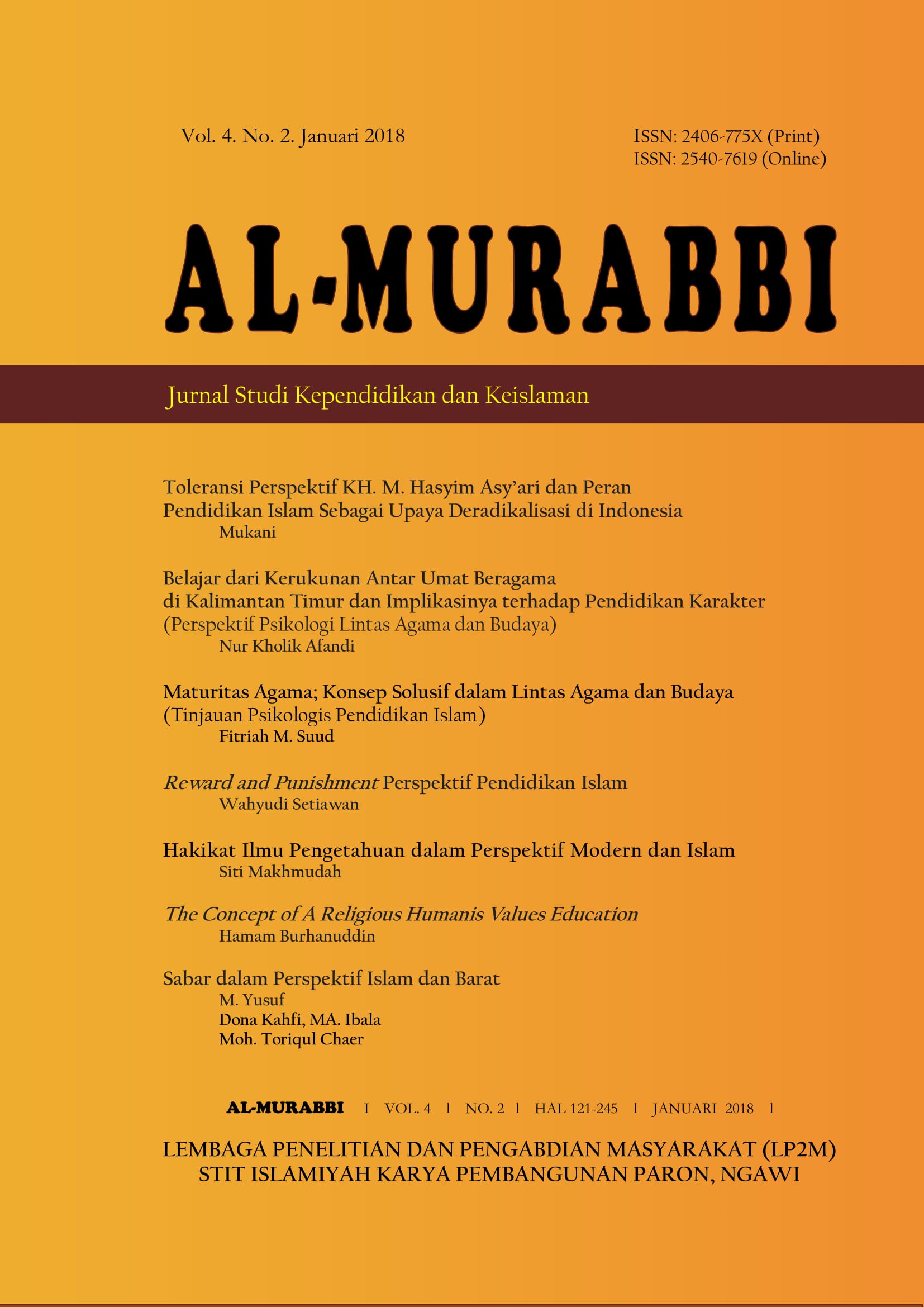Hakikat Ilmu Pengetahuan dalam Perspektif Modern dan Islam
Abstract
Science in a unity appeared in dimensional. Philosophy is an activity though human thought guided their efforts on finding cause for over everything and how human effort after learning of the matter. This research aims to understand: (1) knowledge and understanding of science in etymology and terminology; (2) perbedan of science, knowledge and religion in epistimologi; (3) the extent to which science in Islam; (4) the principal traits of science; (5) the theory of truth; (6) the sources of knowledge; (7) the boundaries of science; (8) the structure of knowledge. Results of the study can be described in several options, which are: first, science is the summary of a set of knowledge or the result of knowledge and facts. While religion is a belief or faith tata tata over something that is absolutely beyond human, appropriate and in line with the faith and worship. Second, with regard to the characteristics of the subject matter of science is as follows: 1) Systematically; 2) Generality; 3) Rationality; 4) Objectivity; 5) Verifiabilitas, 6) and Communality. Third, in Theory a theory of truth is no 3: the theory of correspondence, coherence Theory, theory of pragmatism. Fourth, human source of knowledge using two ways to obtain the correct knowledge, first through ratio and secondly through experience. Fifth, limiting his explorations in the science of human experience, thus embarking upon science exploration on human experience and stop on the human experience, and that is the limits of science. Sixth, the science is essentially a collection of knowledge that is explaining the various symptoms of nature which allows a human doing a series of actions to control these symptoms based on the explanation there is.
Downloads
References
Bahktiar Amtsal, 2004, Filsafat Ilmu, Jakarta: PT Grafindo Persada .
Cecep. Sumarna, 2007, Filsafat Ilmu dan Perkembangannya di Indonesia. Jakarta : Bumi Aksara.
Depdiknas, 2008, KBBI Daring, dari Pusat Bahasa.
http://oxforddictionaries.com/definition/science
http://pusdiklat-dewandakwah.com
Lubis, Akhyar Yusuf , 2011, Pengantar Filsafat Pengetahuan, Depok: Penerbit Koekoesan
Nata, Abudin, 2002,Tafsir Ayat ayat Pendidikan, Jakarta: Raja Grafindo Persada.
S, Soejono, 1978, Filsafat Ilmu Pengetahuan, Yogyakarta : Nurcahya.
Suriasumantri, J. S, 2001, Ilmu Dalam Perspektif, Jakarta: Yayasan Obor Indonesia.
Suriasumantri, Jujun S, 2010, Filsafat Ilmu Sebuah Pengantar Populer, Jakarta: Pustaka Sinar Harapan.
Van Peursen, 2008, Filsafat Sebagai Seni untuk Bertanya, Dikutip dari buku B, Arief Sidharta. Apakah Filsafat dan Filsafat Ilmu Itu?, Pustaka Sutra, Bandung.
Wibisono, Koento , 1997, Gagasan Strategic Tentang Kultur Keilmuan Pada Pendidikan Tinggi, Jurnal Filsafat, Edisi Khusus Agustus.
Yusuf Qaradhawi, 2003, Ilmu Pengetahuan dalam Perspektif Islam, terj. Al-Dîn fî ‘Ashr al-‘Ilm oleh Ghazali Mukri, Jakarta: Gunung Agung.
Copyright (c) 2018 AL-MURABBI: Jurnal Studi Kependidikan dan Keislaman

This work is licensed under a Creative Commons Attribution-ShareAlike 4.0 International License.

